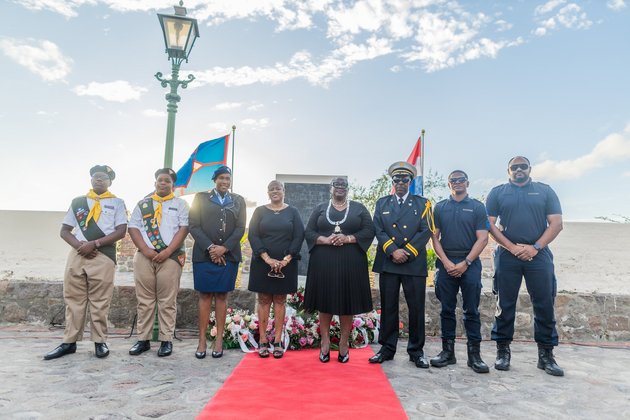It was eleven years ago that Schelvis - 93 years old at the time - stood in the Westerkerk in Amsterdam and told the story of his journey to the Sobibor extermination camp in German-occupied Poland in June 1943.
In an account of the experience, he vividly described the hunger, exhaustion, and filth that 62 passengers endured while being transported in a single railway wagon.
Upon their arrival, he recounted the soldiers ripping their watches off their wrists. He spoke of how he lost his wife Rachel in the ensuing chaos. He never saw her again.
"Which normal human being could have imagined this? How could the world allow us honest citizens of the Netherlands, to be treated like vermin?”, Schelvis asked?
It has been 80 years since the end of World War II and we are still unable to answer these questions honestly.
During this commemoration of those who have lost their lives in battle and other conflicts, we must ask ourselves: what lessons have we learned?
Having lost his happy childhood in The Hague to the Nazi occupation in 1940 as a result of deportation to Bergen-Belson concentration
camp in Germany, Henry Fenichel is concerned that we have not learned anything.
Fenichel stated almost 5 years ago, "Look at the terrible things that are happening! As human beings we haven't learnt the lesson."
Fenichel may be correct in his assessment based on the current Russia-Ukraine war with approximately 50.000 killed and 400.000 wounded to date.
In many ways, the stories of Schelvis and Fenichel are similar to the stories of tens of millions of survivors who were affected by the war. And today we remember them.
We remember the estimated 60 million people who died during World War II. That's an astonishing number of casualties. Among them were civilians and soldiers who bravely put their own safety on the line for our sake. We must never forget them. We must never forget the sacrifice they made. Our freedom is something they fought and died for, and that is a sacrifice we must never take for granted.
Statia did not experience the horrors of the war to the same degree as millions of people in Europe. Neither have we been direct victims of violent global conflicts since World War II.
Our homes were not mercilessly bummed from the sky. No nuclear bombs raining down on us. We were not arrested and taken to our deaths, nor were we forced to live on the streets. We did not face widespread destruction of our land and heritage as is happening in other parts of the world.
But who can tell what might have happened had the war lasted longer? Perhaps the outcome would have been different if courageous Statians like James. C. van Putten, William. O. Hooker, John O. Dembrook, James Duinkerk, Elvira Jonckheer Norris Cranston
and Sarah Dedier had not joined other comrades in sacrificing their lives.
The English writer, poet, and novelist Rudyard Kipling captured brilliantly the sacrifices these men made in his poem, The Old Issue: It states, "When you go home, tell them of us, and say for their tomorrow, we gave our today."
On this Memorial Day as we remember them for their bravery, their selflessness, and patriotism, please allow me to remind you of my yearly supplication, and that is for us as Statians to live in the courageous legacy of these men and women.
May we always remember wars and other armed conflicts did not start with gas chambers and invasions. They start with leaders dividing people into “THEM versus US.” They start with intolerance and hate speech and when we stop caring for each other, when we become desensitized and turn a blind eye. It is therefore imperative that we do not remain silent when injustice is perpetrated against our brothers and sisters; let us not justify nepotism; let us not overlook bias; and let us not turn our back on those who feel abandoned and unsupported.
We should instead always uphold values such as honesty, integrity, and fortitude of character. Let us be unwavering in our support of what we know is right.
It is my hope that on this Memorial Day and throughout our lives, we will all demonstrate that we have indeed learnt our lessons by renewing our faith in our God, in our world, in our country, in our Island St. Eustatius and in each other.
